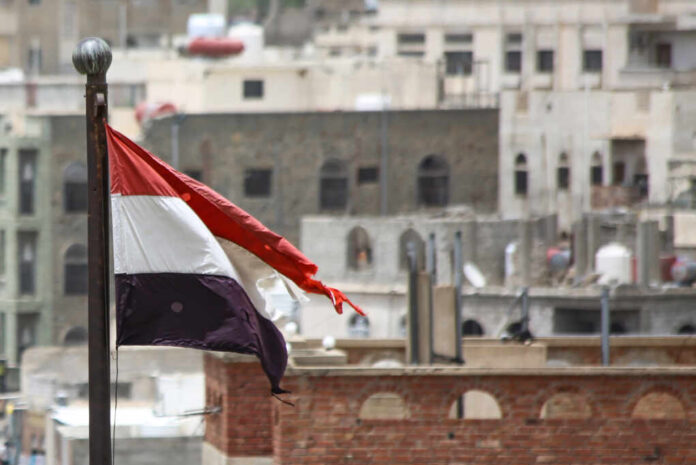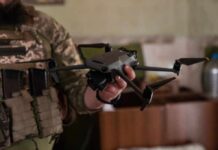
Sirens blared and missiles fired, a startling reminder of the volatile situation as IDF airstrikes pummeled Houthi positions in Yemen, answering Iranian-backed threats.
At a Glance
- Sirens activated in Dead Sea and West Bank due to missile threat
- Houthis fired ballistic missile towards Israel, intercepted by IDF
- IDF airstrikes targeted Houthi infrastructure in key Yemeni ports
- Netanyahu in the US, seeking diplomatic solutions amid escalating conflict
Missile Interception and Retaliation
Aerial tensions erupted as the IDF intercepted a ballistic missile fired by Houthi rebels in Yemen, reportedly aiming for Israel. The interception, visible from Jerusalem, triggered rapid military retaliation targeting the perpetrators. Sirens warned residents across the Dead Sea and West Bank areas to brace for potential impacts. These events reinforce the region’s powder keg nature, demonstrating the risk of Iranian proxies operating with impunity against Israel and its allies.
Watch a report: Israel ‘On High Alert’ Amid Houthi ‘Missile Blitz’ After IDF’s Yemen Bombing
The IDF swiftly launched a precise counteroffensive against Houthi positions in Yemen. These strikes, guided by extensive intelligence efforts, dismantled vital infrastructures, significantly impeding Houthi terrorist activities. The operations targeted ports such as Al Hudaydah, Ras Isa, and Salif, crucial nodes in the Iran-Houthi armament pipeline. This strike decisively cut off a troubling source of weaponry, destabilizing terrorist operations that pose a threat to global security.
Watch: Ballistic missile launch carried out today by the Iran-backed Houthi movement in Yemen
Houthis//
The ballistic missile launch carried out today by the Iran-backed Houthi movement in Yemen highlights a significant strategic consideration. The Houthis are acutely aware that the majority of the drones and missiles they direct at Israel are unlikely to reach their…
— Joe Truzman (@JoeTruzman) April 13, 2025
Strategic Raids and Infrastructure Damage
The IDF’s strategic bombardment emphasized dismantling Houthi capabilities by targeting the commandeered commercial vessel Galaxy Leader and the Ras Kanatib power plant, both integral to Houthi surveillance and military operations. This damage significantly constrained their logistic and strategic reach, increasing the difficulty for these proxies to execute coordinated attacks against regional interests. Such measures underline the necessity of crippling terrorist infrastructures actively engaged in hostile operations.
The staggering coordination between IDF’s air and naval capabilities proved their efficacy in confronting challenges presented by Iran-backed militias. As Israel navigates these turbulent times, the commitment to strike at the heart of Houthi logistical networks, preemptively relatively safeguarding their nation from malign influences, resonates deeply with those valuing defensive readiness over passive diplomacy.
Watch a report: “The Houthi Strike on Ben-Gurion: A Joint U.S.-Israel Imperative
— John Spencer (@SpencerGuard) May 4, 2025
Diplomatic Efforts and International Implications
Coinciding with military operations, Israeli Prime Minister Benjamin Netanyahu’s U.S. visit underscores the confluence of military strength and diplomatic maneuvering. Engaging in talks with President Donald Trump, Netanyahu seeks international support to navigate the heightened tensions proliferated by Iranian proxies. These talks aim to foster a framework mitigating Iranian-backed insurgencies destabilizing the region, proving Israel’s intent to complement defense with desperation for diplomatic consensus.

























